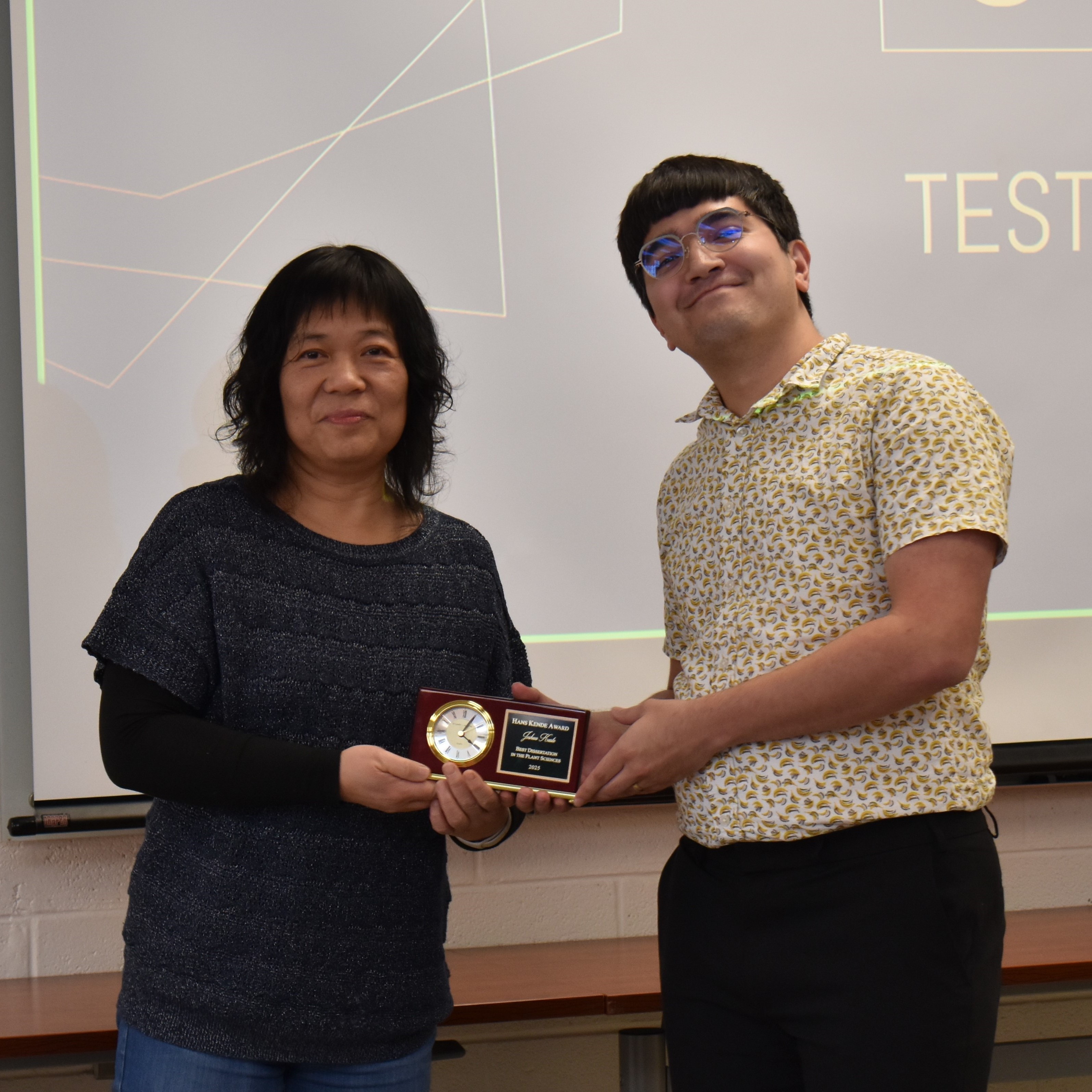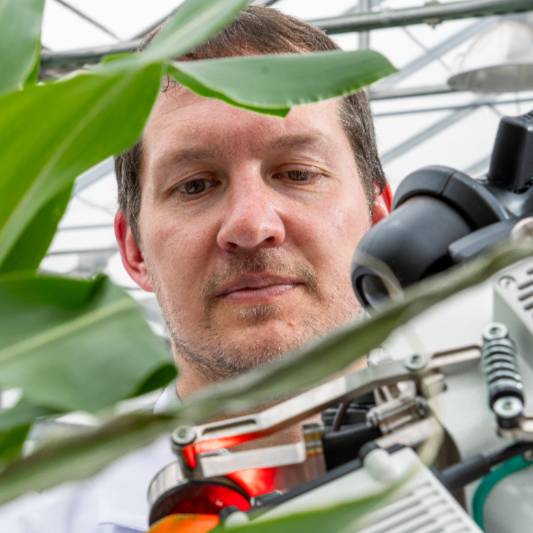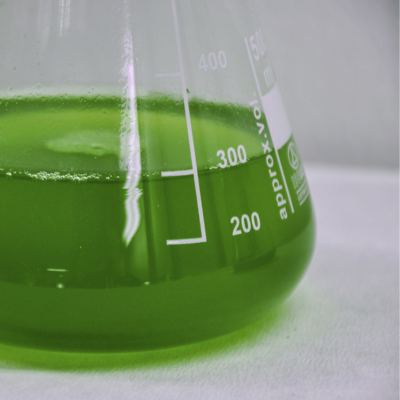Former graduate student Abhijnan Chattopadhyay accepts postdoc position with the National Institutes of Health
Abhijnan Chattopadhyay, former graduate student in David Kramer’s lab, is headed to the National Institute of Health (NIH) at North Carolina Research Triangle Park for his postdoctoral fellowship.
Abhijnan graduated from MSU with a Ph.D. in statistics this summer under the co-mentorship of Tapabrata Maiti and David Kramer. As a statistician, Abhijnan had the flexibility and skillset to work in several disciplines, which is how he found himself at the MSU-DOE Plant Research Laboratory (PRL).
In the Kramer lab, Abhijnan was looking at the genetic and environmental factors under differing stress conditions for plant health. For one project, he worked with Research Assistant Professor Atsuko Kanazawa on a project that took thousands of field measurements and organized them so they could meaningfully interpret the data.

By Kara Headley, MSU-DOE Plant Research Laboratory 2022
“As we started dealing with the large set of data with various conditions and genetic variations, the statistical analyses without bias became a crucial tool,” Atsuko said. “There are scientists who work on bioinformatics and indeed, we have collaborated with them in the past. But this time, we had an opportunity to have a statistics graduate student in our lab. It was a learning opportunity for both sides of different disciplines to understand the languages and the ways of thinking and processing data.”
David Kramer, Hannah Distinguished Professor in the Department of Biochemistry & Molecular Biology, added, “To get to the biology that underlies these massive data sets, we need to do real science. We need to take the data and make interpretable models that can be tested by experimentation. This is where Abhijnan came in.
“Abhijnan’s methods represent an important step forward in addressing these kinds of complex issues, with applications far beyond photosynthesis. It is important to know that, to develop these tools, Abhijnan needed not only to do new statistics but also to connect them to basic biology. He had to communicate between hardcore statistical experts and hardcore biophysicists! This skill in bridging disciplines is extremely difficult, but also the future of science. No doubt this is why Abhijnan is so sought after.”
In his new position with NIH, he will be in the lab of Stephanie London, looking at human genetics – as opposed to plant genetics – and using the same statistical tools and machine learning techniques he used during his graduate studies.
“The way that the current research is trending all over the world is toward looking at how you can use data science or machine learning to solve real-life questions,” Abhijnan said. “These real-life questions don’t come from the statistician, they come from the biologist. I have looked at the question of how plants behave in real life, and that can help us create more climate adaptive plants in the near future.”
He looked at the NIH postdoc position as an opportunity to move on from plant science and into the field of human health.
“My goal is to see how I can impart knowledge from the biologist, the physician or the patient themselves and integrate my statistical tools to answer real-life questions,” Abhijnan said.
By Kara Headley



